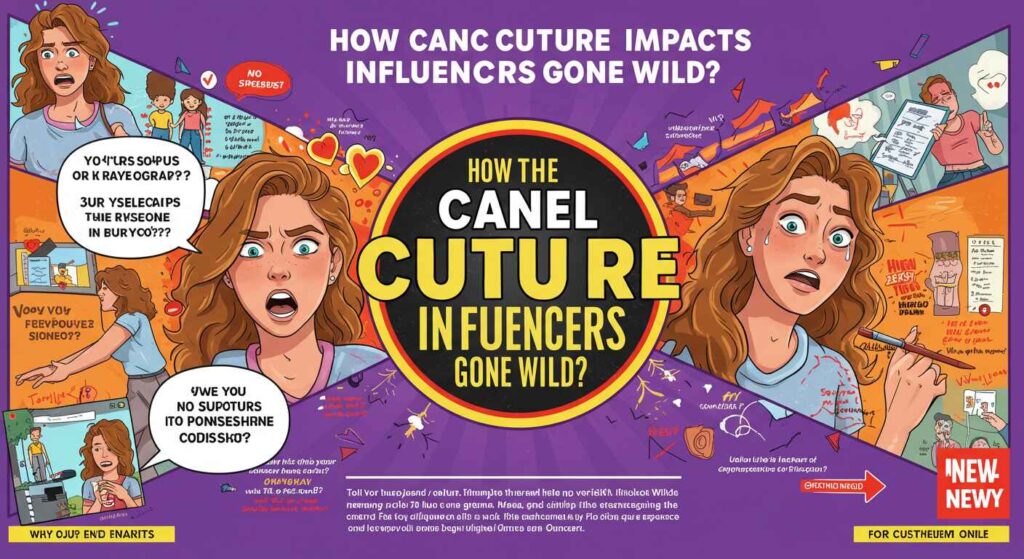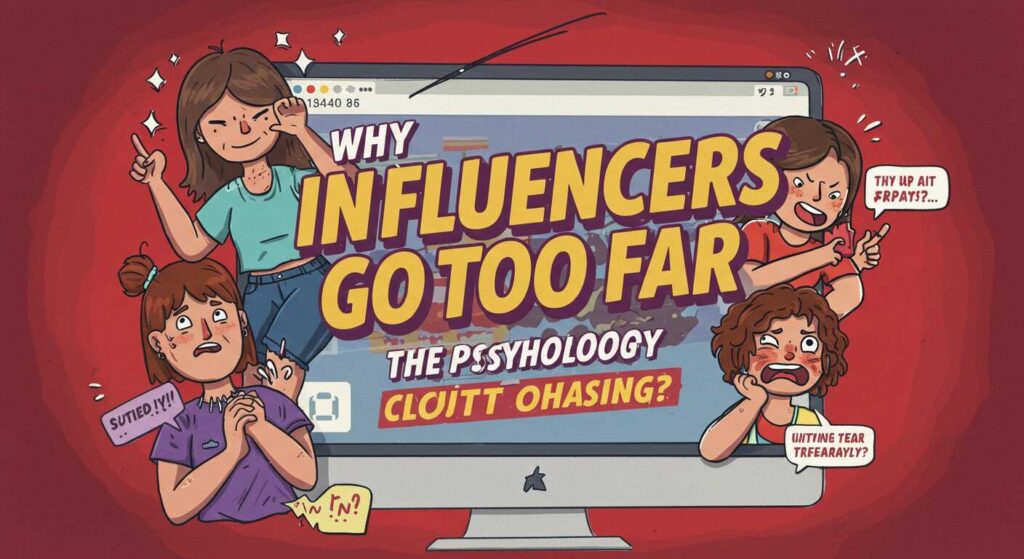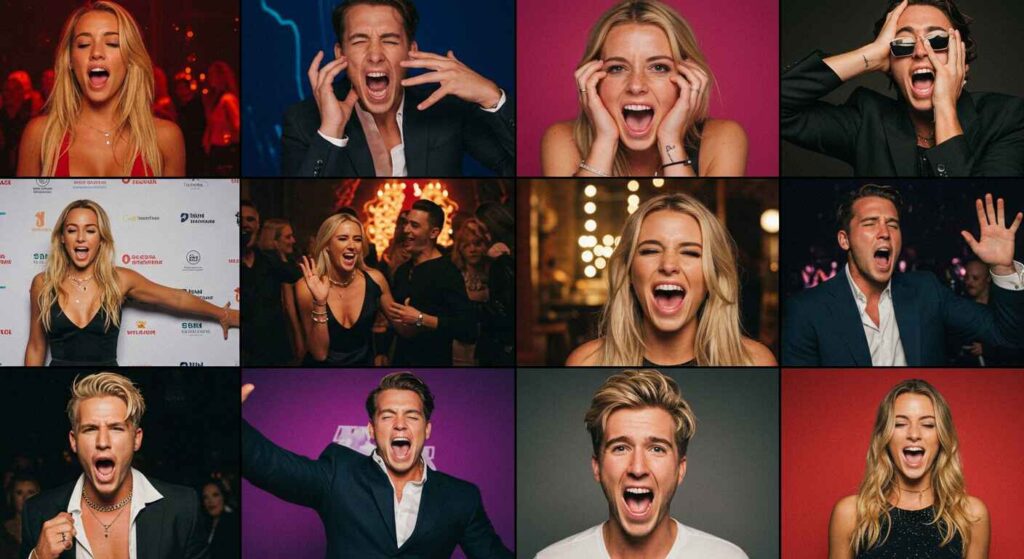In the age of social media, one viral mistake can shift an influencer’s career overnight. The rise of cancel culture public backlash leading to boycotts or loss of credibility has changed how creators behave online. For influencers gone wild, where shocking content often drives attention, cancel culture can be both a career-ending risk and a wake-up call for accountability.
This article explores how cancel culture impacts influencers, why it happens, and what lessons creators, brands, and audiences can learn from these high-profile cases.
What Is Cancel Culture?
Cancel culture refers to the collective withdrawal of support from public figures after they are perceived to have acted offensively or irresponsibly. On social media, this often plays out through:
- Viral hashtags (#Cancel[Name])
- Boycotts of products or collaborations
- Public call-outs from other creators or fans
- Media coverage amplifying the backlash
According to Pew Research on social media trends, more than half of U.S. adults say social platforms give ordinary people greater power to hold influencers accountable.
Why Influencers Are Especially Vulnerable
Unlike traditional celebrities, influencers thrive on personal connection with their audience. When that trust is broken, the fallout is immediate. Key reasons include:
- Direct Engagement: Fans expect authenticity and can spot insincerity quickly.
- Rapid Virality: Platforms like TikTok and X (formerly Twitter) amplify backlash instantly.
- Dependence on Brand Deals: Lost credibility often means lost income streams.
Case Studies: Cancel Culture Meets Influencers Gone Wild
1. James Charles and Subscriber Loss
When beauty influencer James Charles faced accusations from another creator, he lost over 1 million subscribers in just 24 hours.
- Impact: Major loss of credibility and business deals.
- Lesson: Online disputes can escalate into full cancel campaigns.
2. Logan Paul’s Controversial Vlog
Logan Paul’s infamous 2018 vlog from Japan’s Aokigahara Forest triggered worldwide backlash.
- Impact: YouTube removed him from its premium ad program, and sponsorships vanished.
- Lesson: One reckless moment can cause long-term brand damage.
3. Brands Cutting Ties During Scandals
Brands often act swiftly to protect their image. In fact, Statista’s influencer marketing statistics show that authenticity is the most valued trait in creators — meaning scandals can instantly disqualify influencers from campaigns.
The Double-Edged Sword of Cancel Culture
Cancel culture is controversial. Some argue it promotes accountability, while others say it stifles creativity and punishes mistakes too harshly.
Pros:
- Holds influencers accountable for harmful content.
- Encourages ethical standards and transparency.
- Gives audiences a voice in shaping digital culture.
Cons:
- Can lead to online harassment or mental health struggles.
- Sometimes overreacts to minor mistakes.
- May discourage influencers from taking creative risks.
As Harvard Business Review highlights, rebuilding trust and credibility after a scandal requires consistent transparency and responsibility.
How Cancel Culture Reshapes Influencer Behavior
Cancel culture has forced influencers to rethink their strategies:
- More Disclaimers: Clear sponsorship disclosures to avoid legal issues.
- Content Filters: Avoiding overly risky or offensive stunts.
- Reputation Management: Hiring PR teams to handle backlash.
- Authenticity Focus: Building trust through honesty instead of shock value.
Key Takeaways for Influencers and Brands
- Cancel culture amplifies the risks of going “too far.”
- Brands must carefully vet creators to avoid reputation damage.
- Influencers can recover if they show genuine accountability.
- Why Influencers Go Too Far: The Psychology of Clout Chasing
- Top 10 Influencers Gone Wild Moments That Shocked Social Media
Conclusion
Cancel culture is now a permanent part of digital life. For influencers gone wild, it acts as both a warning sign and a cultural checkpoint. While it can end careers, it also encourages more responsible content and genuine connections between influencers and their audiences.
For a deeper dive into scandals and accountability, explore our complete guide to Influencers Gone Wild.



